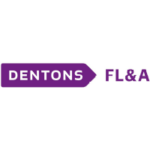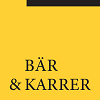-
What are the principal sources of laws and regulations relating to shareholder rights and activism? Do insider trading and/or market abuse rules apply to activist activity?
In the UAE there are several regulations which govern shareholders rights and activism:
- Federal Law No. 32/2021 on Commercial Companies (UAE CCL) governs the rights and obligations of shareholders, including voting rights, rights to dividends, and rights to information.
- Securities and Commodities Authority (SCA) Decision 3/2020 amended by SCA’s Board of Directors Decision no. 2/2024 concerning the Joint Stock Companies Governance Guide (‘SCA CG Rules). The SCA CG Rules governs shareholder rights and emphasizes the importance of transparency and accountability.
- The Company Rulebook – issued on 7 February 2023 pursuant to the Virtual Assets and Related Activities Regulations 2023 (amended on 19 May 2025) of the Dubai Virtual Assets Regulatory Authority (VARA’) – regulates corporate governance and primarily focuses on ensuring transparency, fair practices and investor’s protection within the virtual assets market (VARA Regulations).
- Decision of the Chairman of the SCA Board of Directors No. 18/2017 regulating the acquisition, merger and takeover of listed Public Joint Stock Companies (SCA Decision).
- UAE Financial Markets Regulations, such as the Dubai Financial Market (DFM), Abu Dhabi Securities Exchange (ADX), Dubai Financial Services Authority (DFSA) and Financial Services Regulatory Authority (FSRA), each has its own set of rules and regulations that govern market activities, including those related to shareholder rights and activism.
Insider trading and market abuse laws are indeed applicable to activist activities in the UAE. While the legal framework in the UAE provides a strong basis for protecting shareholder rights and facilitating shareholder activism, activists must also navigate complex regulations regarding insider trading and market abuse. Due diligence and adherence to all applicable laws and regulations are essential when engaging in activist activities.
-
How is shareholder activism viewed in your jurisdiction by regulators, shareholders (both institutional and retail) and the media?
Shareholder activism in the UAE comprehends a range of practices whereby shareholders, whether institutional or retail, take an active role in influencing a company’s strategy, governance, and performance. The perception and response to shareholder activism in the UAE can differ significantly among regulators, shareholders, and the media.
UAE Regulators such as the SCA, has established regulations that promote transparency and accountability in corporate governance. They view shareholder activism as a mean to enhance corporate governance, protect minority shareholders’ rights and as a mechanism for good governance and market integrity, where they encourage shareholders to be involved in the governance of the companies and promote the right to vote and influence major decisions.
Shareholders especially institutional are more likely, than retail shareholders due to limited financial resources, to engage actively in shareholder activism, typically through proxy voting or direct communication with company management. Their activism is inclined toward improving return on investment and advocating for stronger governance policies. They generally view activism as a legitimate and necessary tool to ensure accountability.
The media in the UAE plays an important role in spreading information about shareholder actions and the implications of corporate governance. This helps raise awareness among the broader public about the importance of shareholder rights which will be positive for the overall market environment. There is a gradual increase in awareness among retail investors regarding their rights and the potential benefits of activism, influenced by social media and activist campaigns.
-
How common are activist campaigns and what forms do they take? Is activism more prevalent in certain industries? If so why?
N/A
-
How common is it for shareholders to bring litigation against a company and/or its directors and what form does this take?
In the UAE, shareholder litigation against companies and their directors, while not extremely common, does occur under certain circumstances, particularly within the framework of the UAE CCL. Shareholder disputes can arise from issues such as breaches of fiduciary duty, mismanagement, or failure to adhere to corporate governance practices.
Litigation brought by minority shareholders against the company and/or its directors, could take the form of (i) derivative action on behalf of the company when the company fails to take actions against its directors, (ii) personal actions due to deprivation of rights such as failure to declare dividends or prevention of voting rights; or (iii) an injunction such as seeking a court order to prevent a merger which is deemed detrimental to minority shareholders’ interest.
-
What rights do shareholders/activists have to access the register of members?
The UAE CCL governs all corporate structures and covers rights of shareholders including the right to access the register of members which includes the names, addresses, nationality and shareholding percentage in the company. The UAE CCL gives the shareholders the right to inspect the register of members; and (ii) to obtain copy of the register of members, provided that a written request must be submitted specifying the purpose for which the information is sought.
Pursuant to the SCA CG Rules and the UAE CCL, shareholders of joint stock companies (JSCs), have access rights to the books and documents of the company and any documents in connection with a deal made by the company and concluded with a related party under an authorisation from the board of directors or a decision of the general assembly or as provided by the company’s memorandum articles of association (M&A) in this respect.
As for minority shareholders activists, access to register of members, could be used to utilize the information from the register for reaching out to other shareholders for support on initiatives, and for empowering them to advocate for their rights.
Court order and judicial remedies could be options to impose on the company providing specific information to the shareholder in such a manner that does not conflict with the interests of the company and to ensure their rights are protected under the law.
-
What rights do shareholders have to requisition a shareholder meeting and to table a resolution at the meeting?
The manager of an LLC shall invite the general assembly to convene at the request of one or more shareholders holding at least (10%) of the company’s capital, and may propose specific matters to be included in the agenda of an annual general meeting, provided a formal written request is submitted to the company detailing the agenda of the meeting and/or to addition of any item on the agenda and request a vote accordingly.
One or more shareholders owning together a minimum of (20%) of the company’s capital may, for serious reasons, direct a request to the board of directors of a JSC to have a general meeting called. In such case, the board must call the meeting within a period of five days from the submission of the request.
Shareholders owning together (10%) of the company’s capital have the right to call an extraordinary general meeting to have a special resolution passed. To do so, they must direct a request to the SCA and must provide all the supporting documents.
Each shareholder shall have the right to discuss the topics listed on the agenda.
Unless the company’s M&A or the UAE CCL provides for a higher percentage for certain matters, the general assembly’s meeting shall not be deemed valid unless attended by a number of shareholders owning at least (50%) of the company’s capital.
-
Are there any rights to circulate statements to shareholders?
The UAE CCL and the SCA CG Rules outline the below rights to circulate statements to shareholders; (i) right to information regarding the company so the shareholder can make informed decisions, (ii) right to annual reports where the company is obligated to prepare and distribute annual financial statements and reports to its shareholders; and (iii) special general meeting, during which shareholders should be provided with the necessary documentation, including any resolutions to be discussed.
Companies are encouraged to maintain effective communication with their shareholders through various channels, including company website and official announcements.
-
Who is entitled to attend and speak at a shareholders’ meeting?
Shareholders as primary attendees, proxy holders in the absence of shareholder’s presence, board of directors for presenting reports and making suggestions, auditors to provide insights into the company’s financial performance and in some cases legal advisors.
-
Do holders of other instruments (e.g. options, warrants, contracts for difference, swaps, cash-settled derivatives) have any of the above rights?
Holders of instruments such as options, warrants, contracts for difference, and similar derivatives, generally do not enjoy the same rights as actual shareholders when it comes to governance and participation in the company affairs in the UAE. To have such rights, an individual needs to hold shares in the company itself. However, the specific terms and conditions of financial instruments may vary depending on the rules regulating it.
-
Is stamp duty payable on share acquisitions? Can this be avoided/mitigated (e.g. through use of derivatives)?
- In the UAE, no stamp duty is typically payable on share acquisitions. However, notarization fees for the transfer of shares are paid.
- The sale and/or acquisition of shares is considered a capital gain. A capital gain tax is a charge on profits from the sale of assets. In the UAE as in most jurisdictions, capital gains from shares are classified as short-term or long-term based on the holding period.
- The UAE introduced a federal corporate tax in 2023. A 9% rate on profits above AED 375,000 (with exemptions for smaller businesses and specific sectors) applies to companies. The UAE’s corporate tax generally does not apply to capital gains from the sale and/or acquisition of shares, whether short-term or long-term, if certain conditions are met, such as the participation exemption.
-
To what level can you acquire shares without having to publicly (or privately) disclose your position?
In the UAE, the disclosure of share ownership depends on the legal form of the company whether it is publicly listed (PJSC) or merely a private company such as an LLC or private joint stock company (PrJSC) or the like. For a listed PJSC, a shareholder whose ownership is equivalent to or exceeds (5%) in the capital of the listed PJSC or is equivalent to or exceeds (10%) of a subsidiary or sister or parent company of the listed PJSC, needs to disclose such ownership to the financial market exchange (i.e. DFM or ADX).
The UAE has also introduced Cabinet Decision No. 109/2023 regulating ultimate beneficial ownership (UBO Decision). Under this Decision it is mandatory for shareholders or beneficial owners of legal entities to disclose their ownership and status to the registrar (i.e. the competent authority where such company is registered), whenever such natural person owns or exercises ultimate control over the company, through shares or stocks of direct or indirect ownership by 25% or more of the company’s capital, or has the right to vote in it by (25%) or more, including holding that ownership through a chain of ownership or control, or through control by any other means. Where no natural person is identified then the natural person who holds the position of a higher management official shall be deemed as the UBO.
-
Is the disclosure threshold different if the issuer is subject to a takeover offer?
The SCA has set forth rules regarding disclosure requirements for listed PJSCs, particularly in connection with takeover offers.
As mentioned above, listed PJSCs are required to disclose certain significant events, deals and transactions, including changes in shareholding that exceed certain thresholds typically (5%) or (10%). These disclosures are part of the ongoing obligation to inform shareholders and the market of substantial changes and financial standing.
When a takeover offer is made, the disclosure obligations may become stricter. Generally, the offeror is required to provide detailed disclosures regarding the offer, which can include the terms of the offer, the reasons for it, and any potential impacts on existing shareholders.
The disclosure requirements aim to protect investors by ensuring they have timely access to relevant information that could impact their investment decisions. Therefore, both the offeror and the listed PJSC (being the target company) have obligations to disclose information that might not typically be required outside of a takeover situation.
-
Are there circumstances in which a mandatory takeover is required?
The SCA Decision and the UAE CCL set out clearly the provisions and requirements of a mandatory takeover / acquisition:
- If the ownership ratio of any acquirer or existing shareholder is or becomes equal or exceeds a specified threshold, 30% + 1 security of the voting shares of the PJSC (a controlling interest), it becomes mandatory to make an offer to remaining shareholders to purchase the remaining shares of the company, otherwise the shares which exceed 30% shall not have any voting rights; and
- If the ownership ratio of any acquirer becomes equal or exceeds a specified threshold, 90% + 1 security of the voting shares of the PJSC, it becomes mandatory for the them to accept the offer made by the minority shareholders who hold at least (3%) to sell their shares, that is in return of a consideration consistent with the SCA’s terms and conditions.
-
Does collective shareholder action or ‘acting in concert’ have any consequences in your jurisdiction (e.g for disclosure purposes or the rules on mandatory offers)?
Collective shareholder action, often referred to as ‘acting in concert’, can trigger several legal implications in the UAE, especially disclosure requirements and mandatory offer rules (both mentioned above).
In the context of corporate governance, ‘acting in concert’ refers to a situation where two or more shareholders coordinate their actions to achieve certain objectives regarding the company, such as influencing decisions or acquiring shares or acquiring control of a company. This can include voting together, coordinating the timing of purchases or sales of shares, or jointly deciding on how to direct a corporate strategy.
Both UAE CCL and SCA regulations govern disclosure obligations and mandatory acquisition.
-
Do the same rules and thresholds apply to other instruments (e.g. options, warrants, short positions, contracts for difference, swaps, cash-settled derivatives)?
The rules and thresholds for shares/ securities in the UAE do not directly apply to other financial instruments such as options, warrants, short positions, contracts for difference, swaps, and cash-settled derivatives. Each instrument has its own set of specific rules, thresholds and requirements regarding disclosure, mandatory offers and other trading. Therefore, it differs significantly based on the regulatory framework in place
-
If an activist makes a takeover offer, what impact might any prior share purchases have on the minimum offer price or the form of consideration that must be offered?
Prior share purchases by an activist in a takeover situation in the UAE can significantly impact the offer price and the form of consideration offered, potentially requiring an increase in the offer price or the inclusion of a cash alternative. These factors, along with regulatory approvals and potential minimum acceptance thresholds, play a crucial role in the success of a takeover attempt.
The minimum offer price in a takeover bid is typically determined based on the highest price paid by the bidder for the shares of the target company in the six months preceding the announcement of the offer. If the activist has made prior share purchases in this period, these transactions will directly influence the minimum offer price.
-
What measures are available to companies to protect against an activist campaign?
- For companies to protect themselves against an activist campaign, they may adopt several proactive and reactive measures.
- The role of the board of directors is an important and primary one, as it plays a key role in shareholder engagement, open communication and in responding to activist requests and demands. Directors can help ensure the company anticipates which activists might target the company, and which issues they might raise. They can encourage management to proactively address common issues which might lease to activism that are attracting attention. In many cases, these issues require careful attention and should be reflected in company strategy.
- CSR initiatives to be communicated to highlight the company’s commitment to social and environmental objectives. This can help mitigate criticisms from activists.
- Implementing mechanism and systems for shareholders to provide feedback and concerns, ensuring their voices are heard and considered in decision-making.
- Collaborating with other companies and organizations of the same industry to present a unified stance on issues that might attract activism.
- Maintaining an active and positive social media presence to counteract any negative campaigns and engage with followers and address concerns in real-time.
- The key is to be proactive rather than reactive.
-
What duties do directors owe to a company and its shareholders? Highlight any that are particularly relevant in the context of an activist campaign.
- Board of directors should always make decisions that pursue the best interests of the company and its shareholders, with reasonable care, diligence and prudence, and carry out all procedures that are consistent with the company’s objectives. They owe the company and its shareholders fiduciary duty, duty of care, duty of loyalty and duty of disclosure.
- The directors will be liable to the company, the shareholders and third parties for all acts of negligence, error, fraud, abuse of power or concluded deals or transactions involving conflicts of interest or violating the UAE rules & regulations and M&A of the company.
- In the context of an activist campaign, all the above-mentioned duties become significant. These duties protect the interests of the company as well as ensure transparency and accountability to shareholders. Directors need to balance the voices of activist shareholders with their fiduciary responsibilities, duty of care, and loyalty to all stakeholders in the company.
-
What rights does a company have to require parties to disclose details of their interests (direct and indirect) in the company’s share capital?
The Company’s rights to require parties to disclose their interests (both direct and indirect) in the company’s share capital are primarily governed by the UAE CCL, UBO Decision, SCA Decision, SCA CG Rules and VARA Regulations.
Each of the above decisions and regulations imposes on each shareholder, whether corporate or individual, owning director or indirect shares, to disclose to the company and/or the relevant competent authority where the company is registered or regulated, (i) shareholdings and any changes in their shareholding to the company, and (ii) identity and details of the ultimate beneficial ownership.
Furthermore, a company has the right to establish its own internal rules, policies and bylaws that may include further requirements for disclosure.
These rights are aimed at promoting transparency and good governance within the corporate environment.
-
Are there restrictions on companies selectively disclosing inside information to activists?
There are several UAE regulations which restrict the selective disclosure of inside information by companies, whether to activists or any other person.
The Federal Decree-Law No. 34/2021 on combating and countering rumours and cybercrimes, protects personal data from unauthorized access and disclosure. This means that even if an activist is seeking information, companies must ensure that the data is handled responsibly and in accordance with the said decree.
The Federal Decree-Law No. 36/2021 on trademarks, also protects trade secrets, which are confidential pieces of information that give a business a competitive edge. Sharing such information with activists, even if it’s to highlight a potential issue, could be a breach of trade secret protection.
SCA regulations prevents any person, chairman, director or management (i) to deal in securities on the basis of unpublicized or undisclosed information he acquired by virtue of his position; or (ii) to spread rumours regarding the selling or buying of shares; or (iii) to exploit their inside information as to the company in the purchase of shares or the sale thereof in the market (DFM or ADX).
Any transaction effected by any person in contravention of the provisions of the two preceding paragraphs shall be null and void.
VARA Regulations deems the disclosure of inside information as unlawful disclosure, when the company or any managerial position therein possesses inside information and discloses that inside information to any other person or entity, except where the disclosure is made in the normal exercise of an employment, a profession or duties. Hence, the onward disclosure of recommendations or inducements amounts to unlawful disclosure where the company or management disclosing the recommendation or inducement knew or ought to have known that it was based on inside information.
Companies must adhere to the principle of “fair disclosure.” This means that they cannot selectively disclose inside information to certain individuals or groups (including activists) without making that information publicly accessible.
There may be limited exceptions under which information can be shared (for instance, in the context of mergers or acquisitions).
-
Are settlement agreements between a company and an activist permitted in your jurisdiction? How common is it for activist campaigns to be resolved in this way?
- Disputes between companies and activist shareholders could be amicably resolved by entering into a settlement agreement as it can serve as an effective means of resolving disputes. Such settlement agreements are permitted under the civil law system since it is viewed as private contracts and the parties involved are allowed to contract freely, provided that the provisions of such agreements do not contravene the public policy and the UAE prevailing laws.
- These agreements may provide a means to address the concerns and objectives of both parties while potentially avoiding costly and burdensome proxy battles or litigation.
- Though, such agreements are permitted, specific approvals maybe required from regulators such as SCA, VARA, DFSA and others, especially when it comes to implications for shareholders or the wider market.
United Arab Emirates: Shareholder Activism
This country-specific Q&A provides an overview of Shareholder Activism laws and regulations applicable in United Arab Emirates.
-
What are the principal sources of laws and regulations relating to shareholder rights and activism? Do insider trading and/or market abuse rules apply to activist activity?
-
How is shareholder activism viewed in your jurisdiction by regulators, shareholders (both institutional and retail) and the media?
-
How common are activist campaigns and what forms do they take? Is activism more prevalent in certain industries? If so why?
-
How common is it for shareholders to bring litigation against a company and/or its directors and what form does this take?
-
What rights do shareholders/activists have to access the register of members?
-
What rights do shareholders have to requisition a shareholder meeting and to table a resolution at the meeting?
-
Are there any rights to circulate statements to shareholders?
-
Who is entitled to attend and speak at a shareholders’ meeting?
-
Do holders of other instruments (e.g. options, warrants, contracts for difference, swaps, cash-settled derivatives) have any of the above rights?
-
Is stamp duty payable on share acquisitions? Can this be avoided/mitigated (e.g. through use of derivatives)?
-
To what level can you acquire shares without having to publicly (or privately) disclose your position?
-
Is the disclosure threshold different if the issuer is subject to a takeover offer?
-
Are there circumstances in which a mandatory takeover is required?
-
Does collective shareholder action or ‘acting in concert’ have any consequences in your jurisdiction (e.g for disclosure purposes or the rules on mandatory offers)?
-
Do the same rules and thresholds apply to other instruments (e.g. options, warrants, short positions, contracts for difference, swaps, cash-settled derivatives)?
-
If an activist makes a takeover offer, what impact might any prior share purchases have on the minimum offer price or the form of consideration that must be offered?
-
What measures are available to companies to protect against an activist campaign?
-
What duties do directors owe to a company and its shareholders? Highlight any that are particularly relevant in the context of an activist campaign.
-
What rights does a company have to require parties to disclose details of their interests (direct and indirect) in the company’s share capital?
-
Are there restrictions on companies selectively disclosing inside information to activists?
-
Are settlement agreements between a company and an activist permitted in your jurisdiction? How common is it for activist campaigns to be resolved in this way?









